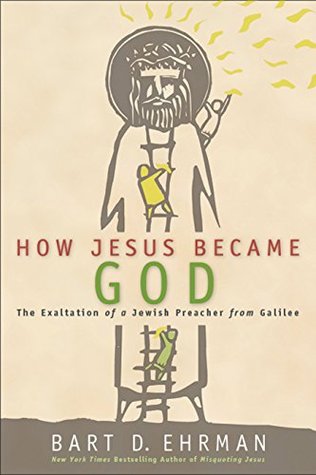More on this book
Community
Kindle Notes & Highlights
Read between
July 14 - August 8, 2020
what is more important than the life of the historical Apollonius is the set of legends that sprang up about him and that were widely believed among people of the time. His great philosophical insights eventually led many people to assume that he could not have been a mere mortal, but that he was himself a god striding the earth. Just over a century after his death, Apollonius was awarded a holy shrine in his home city of Tyana, dedicated by none other than the Roman emperor Caracalla, who ruled from 198 to 217 CE. We are told that the emperor Alexander Severus (222–235 CE) kept an image of
...more
The story of Apollonius’s birth, as recounted in Philostratus’s Life of Apollonius of Tyana, is particularly worth our consideration. The “annunciation” story is both like and unlike the story earlier found in the Gospel of Luke (1:26–38). When Apollonius’s mother was pregnant with him, she had a vision of a divine being, the Egyptian god named Proteus, renowned for his great wisdom. When she asked who her child would be, the god answered, “Myself.” The birth was similarly miraculous. The mother was told to go with her servant girls into a field, where she fell asleep on the grass, only to
...more
Modern scholars have debated the significance of the obvious connections between Jesus and Apollonius, but it is not merely a recent debate. In the early fourth century CE, a pagan author named Hierocles wrote a book called The Lover of Truth that contained a comparison between these two alleged Sons of God and celebrated the superiority of the pagan version. We no longer have the book in its entirety. But some years after it was written, it was explicitly refuted in the writings of the fourth-century church father Eusebius—sometimes known as the “father of church history” because he was the
...more
Paul sees a man who is crippled, and through the power of God he heals him. The crowds who have seen this miracle draw what for them is the natural conclusion: “The gods have come down to us in the likeness of men” (Acts 14:11). It is striking that they call Barnabas Zeus and Paul—the one who has been doing all the talking—Hermes. These identifications are no accident. Zeus was the Greek counterpart of the Roman Jupiter, and Hermes was the counterpart of Mercury. The people in Lystra know the tale of Philemon and Baucis and think that the two gods have appeared once again in their midst. So
...more
This highlight has been truncated due to consecutive passage length restrictions.


